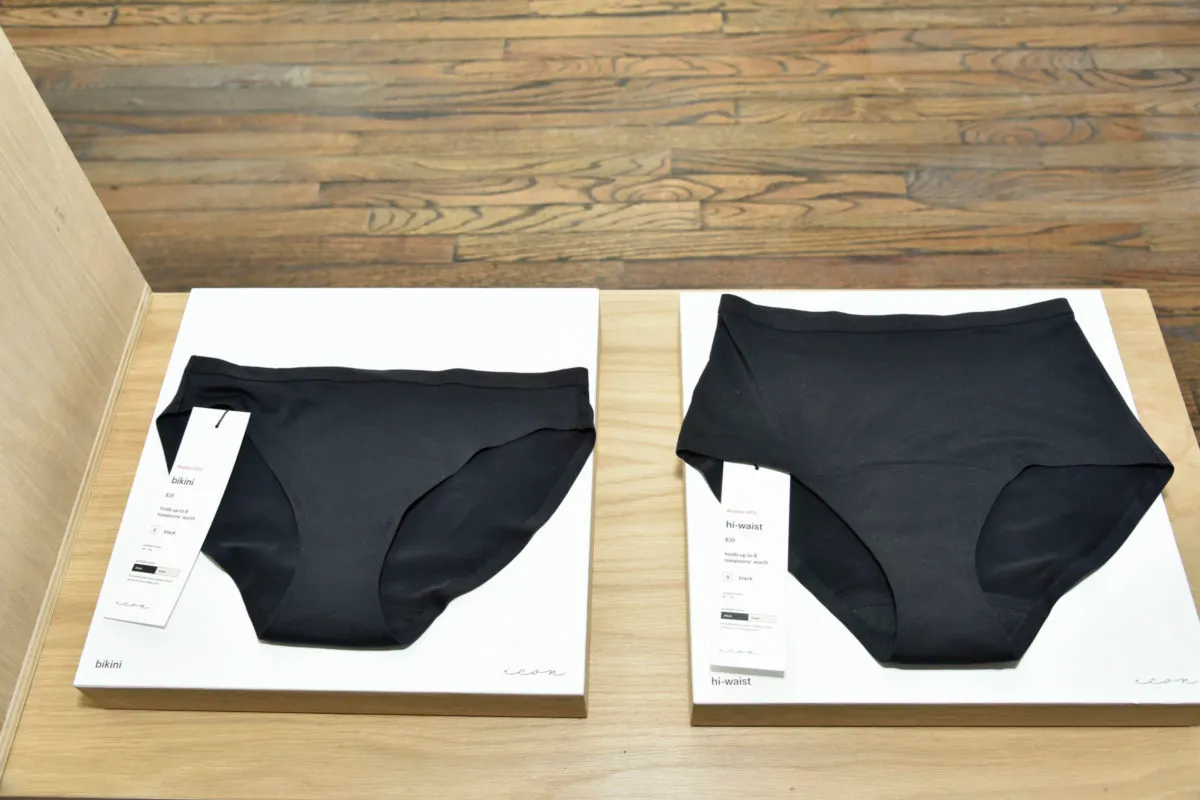Toxic chemicals: not great for humans, but especially bad for our genitals. Yet according to scientists, toxic chemicals have been found in the most upsetting of places: Thinx period underwear. Cool cool cool. This was reported by Jessian Choy of Sierra, the Sierra Club’s magazine, who had unused Thinx underwear analyzed by nuclear scientist Graham Peaslee of the University of Notre Dame. The results found polyfluoroalkyl substances (PFAS) on the inside layers of the crotch.
PFAs are frequently found in waterproofing/water-resistant finishes, from raincoats to baby bibs to teflon to cleaning products. They are also found in food packaging, and since they are not biodegradable they eventually wind up in our soil, our drinking water, the food we eat, etc.
PFAs have been linked to a variety of health problems, including cancer, fertility problems, birth defects, liver damage, thyroid issues, and more. PFAs are bad news for our bodies, and having them pressed up against our most delicate and exposed (not to mention absorbent) bits is a recipe for disaster.
It’s not easy being a human that menstruates. You can suffer from a variety of symptoms which include PMS, mood swings, bloating, and nausea, just to name a few. Your nice underwear is frequently in peril of being ruined. And the only options for dealing with your crimson wave are jamming a cotton bullet up in you or wearing a pad, which is essentially a diaper for adults. Oh, there are menstrual cups too, if you enjoy juggling a plastic shot glass of your own fluids every few hours.
Enter period panties: these extra-absorbent undies allowed you to free bleed with no muss and no fuss. Thinx quickly became a leading brand in the market, thanks to trendy minimalist advertising and feminist messaging aimed at destigmatizing menstruation. Thinx CEO Maria Molland responded to the Sierra article saying, “Based on these third-party tests, PFAS chemicals were not detected in Thinx products … Our customers’ health and safety is our number one priority, and we will always work to deliver the safest products available.”
This isn’t the first time the Thinx brand has been subject to controversy: former CEO Miki Agrawal was ousted from the company for sexual harassment and repeated inappropriate behavior towards her employees.
It’s a disappointing turn of events for a product that many were hoping would be an eco-friendly answer to menstruation products. We know that pads and tampons, like most single-use products, have a negative impact on the environment. But when considering damage to the environment vs. damage to our private parts, most of us will do what we can to ensure the safety of our junk.
On the upside, Lunapads underwent the same testing and were found to contain no PFAS. Between those and menstrual cups, there are still safe reusable menstrual options for those of us who want to stay green while riding the red dragon.
(via Fast Company, image: Eugene Gologursky/Getty Images for THINX, Inc.)
Want more stories like this? Become a subscriber and support the site!
—The Mary Sue has a strict comment policy that forbids, but is not limited to, personal insults toward anyone, hate speech, and trolling.—










Published: Jan 14, 2020 05:47 pm